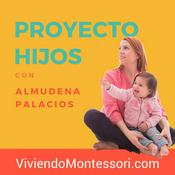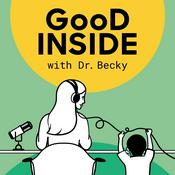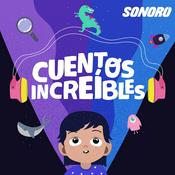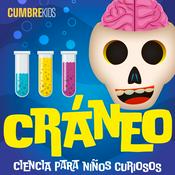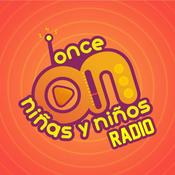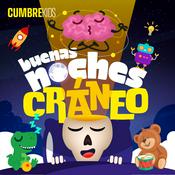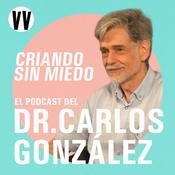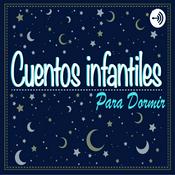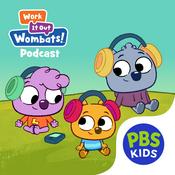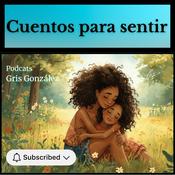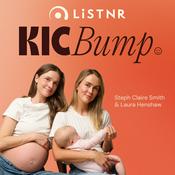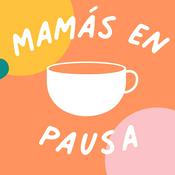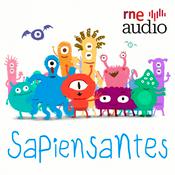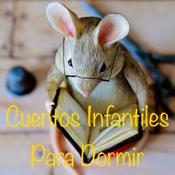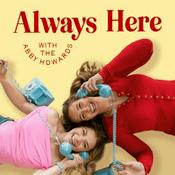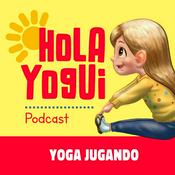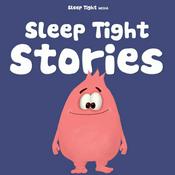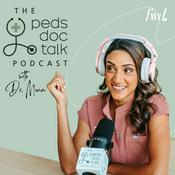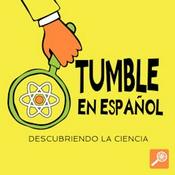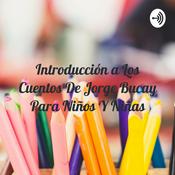67 episodios
- In this episode, we dive into the “9-year-old sass” phase — what’s actually happening developmentally and how parents can respond without shaming, escalating, or losing connection.
Around age nine, kids are stretching into independence. They’re testing tone, experimenting with power, and beginning to see the world (and you) through a more critical lens. Eye rolls, dramatic exaggerations, and talking back aren’t signs you’ve failed — they’re signs your child is growing.
We talk about why regulating yourself first is the most important step before responding, and how to hold firm boundaries without falling into either permissiveness or shame. This isn’t about “gentle parenting” versus discipline — it’s about calm leadership
Links:
Immunity tea from Rowe Casa (Use Discount code DRORGANICMOMMY)
https://www.rowecasaorganics.com/products/immunity-herbal-tea?sca_ref=10410646.exGF0cdNwZoXh1M0
Tallow Body Wash Discount code - DRORGANICMOMMY
https://localrevival.co/products/tallow-honey-bodywash
Pique Tea Vespers
http://piquelife.com/organicmommy
1:00 – Millennial Find of the Week3:29 – Sass and 9-year-olds4:00 – Understanding what’s going on at 9 years old4:50 – Regulating yourself before responding8:49 – What to do when they roll their eyes11:00 – Gentle parenting vs. holding boundaries13:00 – Not shaming them13:47 – How to deal with the talking back15:50 – How to deal with the overdramatic exaggerations17:00 – Natasha shares a story to explain how she handled it19:00 – How to respond to 9-year-old dramatics22:00 – Ways to create extra connection with your 9-year-olds - This week we cover everything from millennial identity and favorite finds to fragrance exposure and hormone health plus a big parenting deep dive. We answer listener questions on celery powder in bacon, navigating unkind or violent language picked up at school, and screen habits that actually support kids’ development. We also talk about Natasha's thoughts on shows like Bluey, why repetition is beneficial, why fast-forwarding is a no in our house, and why TV is often a better choice than iPads. A practical conversation about modern parenting, health, and raising thoughtful kids in a noisy world.
Timecodes
1:00 – Are we actually millennials?
We kick things off debating whether we technically qualify as millennials, Xennials, or something in between
2:00 – Millennial Find of the Week: Natasha’s pick is a body soap she’s loving right now & Emily’s pick is a scarf she’s wearing on repeat
4:00 – Fragrance + hormone disruption: Natasha jokes that she wants a button that says: “Ask me about how fragrances are endocrine disruptors.”
5:00 – Listener Q&A: celery powder + bacon
6:51 – Kids picking up violent or unkind language at school: A listener asks what to do when a preschooler comes home repeating violent phrases—or words like “stupid” and “idiot”—learned from other kids.
8:33 – Thoughts on Bluey: Our honest take on the show
10:00 – Why repeating the same episode is actually good: Why kids benefit from watching the same show over and over, and how repetition supports emotional regulation and learning.
11:25 – Why Natasha doesn’t allow fast-forwarding
14:15 – iPad vs TV
Links:
Local Revival Soap https://go.shopmy.us/p-41527922
Emily’s Scarf - https://go.shopmy.us/p-41530295 - In this episode, we talk about exhaustion by association. The mental load of parenting while constantly reassessing what we think we know. Natasha shares her experience navigating viral induced asthma, why new research has changed her approach to hygiene, and the surprising results of a microplastics study she is participating in. We discuss why reducing exposure matters, how behavior changes can actually move the needle, and why owning mistakes is part of good parenting and good health.
Timecodes:
1:00 -Millennial find of the week and please excuse our tween humor
2:00 - Natasha shares what it has been like managing viral induced asthma and navigating illness as a parent
4:30 -Why Natasha may be switching from hand washing to Purell A conversation on updated research around alcohol based sanitizers and what actually kills viruses
6:30 - Why rinsing with salt water matters and when she uses it
8:30 -Natasha shares a surprising personal update: Zero microplastics found in her system and what that means + discussion of ongoing research on microplastics nanoplastics PFAS and exposure reduction - This week’s episode is a quick but informative one. We start by catching up and sharing our Millennial Must-Haves of the week, including sleep-friendly ear plugs, non-toxic men’s t-shirts, favorite shorts, and workout clothes.
The main focus of the episode is eggs. We break down the Vital Farms controversy, explain what to look for when buying eggs, and share how to source the best options for your family. We also talk about how eggs support collagen intake and why they’re such a powerful, affordable food to include regularly.
Short, practical, and packed with helpful takeaways.
Links (as mentioned in the episode)
Ear plugs like earrings: https://amzn.to/4pX5878
Voterra t-shirts: https://vottera.com/products/regenerative-organic-cotton-t-shirts-for-men
Ryker shorts: https://rykerclothingco.com/products/the-apex-short-master?variant=50147749822786
Natasha’s favorite eggs: https://nourishfoodclub.com
Red Hen app: https://www.redhenapp.com
Timecodes:
1:00 – Catching Up
Quick life updates and what’s been going on lately in both homes.
2:00 – Millennial Must-Haves of the Week
This week’s finds that are actually being used and loved:
• Ear plugs that look like earrings and are comfortable for sleeping
• Non-toxic, regenerative organic cotton t-shirts for men
• Men’s shorts we’ve been loving lately
• Favorite workout clothes for women
8:19 – Talking All About Eggs
• Why eggs are such an important staple in our homes
• Breaking down the recent Vital Farms controversy
• What labels actually mean and which ones matter
• How to find the best quality eggs available to you
• Why sourcing and farming practices make a difference
17:00 – How to Get Collagen From Eggs
• How eggs naturally support collagen intake
• Which parts of the egg matter most
• Simple ways to incorporate them regularly - Interior designer Erin Fetherston joins us to break down how to reduce toxins in your home without feeling overwhelmed. From bedrooms and beds to couches, rugs, and flooring, Erin shares practical starting points, trusted materials, and the certifications that actually matter. They also unpack common greenwashing myths, discuss popular furniture brands, and offer reassurance for anyone feeling behind on their non-toxic home journey.
Links and Notes:
Bedding
Quince (use “organic” in search): https://www.quince.com/search?q=organic&filter=departments%3DHome
Coyuchi
https://www.coyuchi.com/
Boll and Branch
https://www.bollandbranch.com/
The Futon Shop
https://www.thefutonshop.com/
Natasha’s Mattress Blog:
https://www.drorganicmommy.com/blog/mattress-guide-natasha-beck
Natasha’s kitchen swaps:
https://www.drorganicmommy.com/kitchen
Upholstery
The Futon Shop
Cisco Home (inside green)
https://ciscohome.net/pages/inside-green
Medley Home
https://medleyhome.com/
Kalon Studios
https://kalonstudios.com/
Avocado makes some furniture
https://www.avocadogreenmattress.com/collections/beds-furniture-1
Rugs
Organic Weave
Nordic knots
Jaipur Living (100% undyed wool options)
Enkay
https://www.enkay.com/
https://www.urbannatural.com/
Etsy Finds
HedgeHouse: https://www.etsy.com/shop/HedgeHouse
https://www.etsy.com/shop/Ottomanmarrakech
Amish furniture
Loewen Design Studios
https://www.loewendesignstudios.com/
https://www.thosmoser.com/
Timecodes:
1:00 – Where to start with reducing toxins in the home
3:45 – Where to start in the bedroom
5:30 – Concrete flooring vs. wood floors
6:00 – What matters most when choosing a bed frame and mattress, and Erin’s favorite brands
11:00 – How to off-gas furniture to help make a difference in your home
12:00 – Labels to look for when buying wood furniture
13:00 – Brands Erin recommends
15:00 – Erin’s take on IKEA
17:00 – Erin and Natasha’s take on the Nugget couch
17:40 – Erin and Natasha answer listener questions about couches
20:00 – Sheepskin throws on couches
21:00 – Where Erin sources organic couches
25:00 – What to do if you’re feeling overwhelmed or behind
29:00 – Erin’s take on rugs and what you need to know
30:00 – Why you shouldn’t be fooled by “sustainability” headlines
31:00 – What certifications actually matter
Más podcasts de Niños y familia
Podcasts a la moda de Niños y familia
Acerca de When Millennials Become Moms
Welcome to "When Millennials Become Moms," covering all aspects of parenting, pregnancy, postpartum care, nutrition, and non-toxic living. Dr. Natasha Beck, also known as Dr. Organic Mommy, is a public health and parenting expert. She founded Dr. Organic Mommy to assist every parent in making healthy decisions for themselves and their families.
During her early career in clinics, she observed the significant impact of diet on children's health. Her determination grew when her first child was hospitalized for 29 days, fueling her frustration with marketing schemes and the lack of regulation and transparency in the consumer product industry. Implementing non-toxic changes in her life, she began educating others about her journey. She continues her research and exploration with "When Millennials Become Moms." Along with her co-host and Dr. Organic Mommy co-founder Emily Raiber, they engage with leading experts, share personal struggles, and navigate the vast amount of information available. They aim to simplify the complexities of modern motherhood, which is very different from the era when baby boomers were raising children.
Sitio web del podcastEscucha When Millennials Become Moms, Había Una Vez by Naran Xadul | Cuentos Infantiles y muchos más podcasts de todo el mundo con la aplicación de radio.net
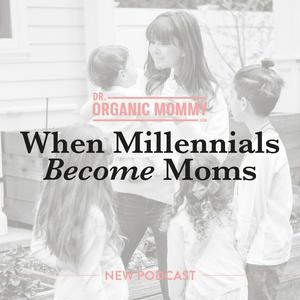
Descarga la app gratuita: radio.net
- Añadir radios y podcasts a favoritos
- Transmisión por Wi-Fi y Bluetooth
- Carplay & Android Auto compatible
- Muchas otras funciones de la app
Descarga la app gratuita: radio.net
- Añadir radios y podcasts a favoritos
- Transmisión por Wi-Fi y Bluetooth
- Carplay & Android Auto compatible
- Muchas otras funciones de la app


When Millennials Become Moms
Escanea el código,
Descarga la app,
Escucha.
Descarga la app,
Escucha.



